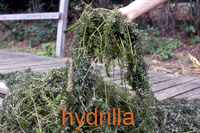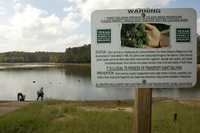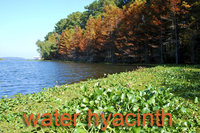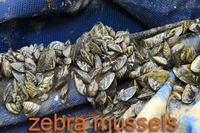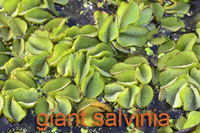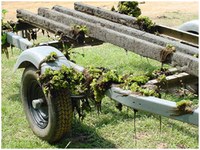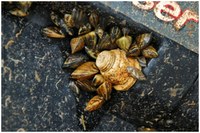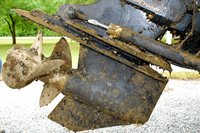Invasive Aquatic Species
Texas Parks and Wildlife Department enforces laws to manage and conserve our natural resources. This includes protecting state waters against exotic aquatic species. Fish, shellfish, and aquatic plants that are not native to Texas may compete with native animals and plants for food and space. Because they often lack natural enemies in their new environments, they multiply and spread at alarming rates, interfering with boat traffic, harming water quality, and causing many other problems.
Two species of great concern are zebra mussels and giant salvinia.
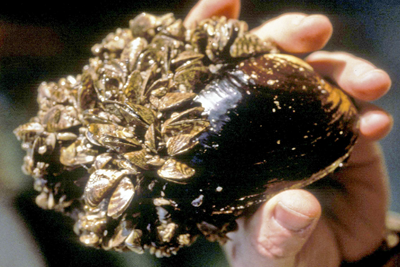
Zebra mussels (shown here clinging to the shell of a common mussel) have been spotted in many Texas waters. If you find zebra mussels in another Texas water body, please alert authorities using the report form at TexasInvasives.org. They latch onto hard surfaces in water, including rocks, rope, pipes, and other bivalves. They can shut down people's water supplies by colonizing inside pipes. They can filter critical nutrients out of aquatic ecosystems, leading to declines in fish populations. They can sink buoys and docks. They can damage boats and other structures. Millions of dollars are spent nationwide each year to control, clean, prevent and monitor them.
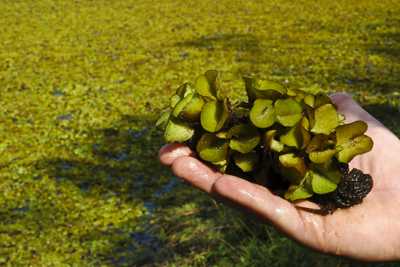
Giant Salvinia damages aquatic ecosystems by outgrowing and replacing native plants that provide food and habitat for native animals and waterfowl. Additionally, it blocks out sunlight and decreases oxygen concentrations to the detriment of fish and other aquatic animals. When plant masses die, decomposition lowers dissolved oxygen still further. Giant salvinia infestations often expand very rapidly. It can double in about a week under the right circumstances.
Stop Aquatic Hitchhikers! Clean Recreational Equipment
Exotics often travel from one water body to another by "hitching a ride" on a watercraft. To curb the spread of these invasive species, boaters in Texas are required by law to remove harmful plants and animals from boats and trailers before leaving the vicinity of a lake, river, or bay.
Follow These Simple Steps
Clean- Remove all plants, animals, and mud and thoroughly wash everything, including crevices and other hidden areas.
Drain- Eliminate all water before leaving the area, including wells, ballast, and engine cooling water.
Dry- Allow time for your boat to completely dry before launching in other waters.
If your boat has been in infested waters for an extended period of time, or if you cannot perform the required steps above, you should have your boat professionally cleaned with high-pressure scalding hot water (>140°F) before transporting to any other body of water.
